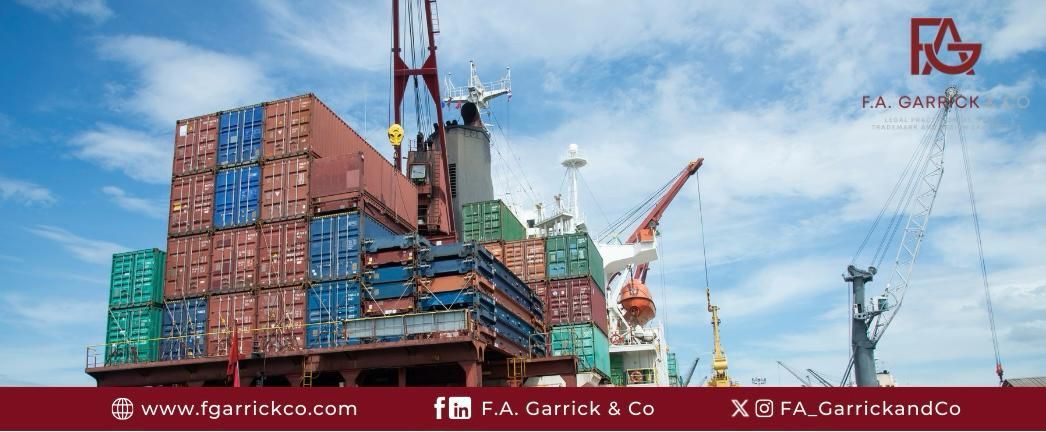INTRODUCTION

Africa remains relevant in the realm of global trade due to the concentration of natural resources and its population size which accounts for a sizeable part of the global market and workforce. While this should ordinarily position the continent to be one of the richest in terms of foreign reserves and economic leverage, this is not the reality. The need for the economic advancement of the African continent has birthed several initiatives in the past too many to recount, however, a recent and significant step towards this drive is the conception of the African Union’s 2063 Agenda: the African Continental Free Trade Area Agreement (‘AfCFTA/ the Agreement’).
This agreement attempts to conceptualise a blueprint for attaining inclusive and sustainable development across the continent over the next 50 years. It intends to create a single market for goods and services, facilitating movement of persons, to deepen the economic integration of the African continent while seeking to unite the economic growth of its members by establishing a free trade area for African countries. The AfCFTA is underpinned by the desire to boost intra-African trade by providing a comprehensive and mutually beneficial trading relationship among the State Parties covering trade in goods and services, investment, intellectual property rights, competition policy, digital trade, and women and youth in trade. However, one wonders whether trade liberalisation within the context of AfCFTA means the immediate tariff eradication. This article shall comment on the concept of tariff concessions towards trade liberalisation within the context of AfCFTA, while also highlighting legalities that may pose a challenge to the actualisation of this agreement for member states and businesses.
UNDERSTANDING THE CONCEPT OF TARIFF CONCESSIONS AND TRADE LIBERALIZATION IN THE CONTEXT OF AFCFTA
Tariff concession generally refer to the gradual reduction or removal of tariffs usually paid on goods imported. Tariff plays a major role in the price of goods; consequently, its reduction arguably results in lower prices for imported goods, and this advances continental market competition. On the other hand, trade liberalisation means opening markets by reducing restrictions on the movement of legal goods and trade personnels – invariably making it easier for businesses to leverage cross border policies for their operations.
Under AfCFTA, Tariff concessions involve removing tariffs in stages. Article II and III of the AfCFTA requires members to initially remove tariffs from 90% of goods per AfCFTA Tariff Modalities, eventually allowing free access to at least 97% of goods and most of services across the African continent. The creation of a single market for goods, services and the facilitation of movement of persons across borders, are fractional but core benefits fostered by the implementation of the AFCFTA. The agreement also contributes to the movement of capital and natural resources and promotes local and foreign direct investments (FDIs) reflective in the industrial development and diversification around key industries such as agriculture, manufacturing and services.
Notwithstanding the above and the socio-economic benefits of the agreement, there are arguments unfavourable to trade liberalisation under the agreement especially in the manufacturing sector. It is important to note that the need for trade liberalisation is bolstered by the thought process that the underdeveloped and developing countries within the continent would collectively experience a rise in income gains. This presumption is hinged on the reciprocity from richer countries in eliminating the import tariffs and duties on goods and services which will drastically reduce the cost of goods while maintaining original quality of goods consumed by a larger population. While this is evidently a great benefit, it also poses the risk of running a huge percentage of local manufacturers out of market, leading to job loss and reduction in purchasing power of the affected countries.
Victor Mlambo and Mfundo Masuku (2022)[1] argues that where trade liberalisation is implemented, importing goods may become cheaper than buying from local manufacturers, who have overtime capitalised on the expensive rate of import duties and tariffs, leading them to present an alternative to consumers – by locally manufacturing these goods. This act has offered millions of persons jobs that may now be at risk. While critics to this argument posits that jobs will be created by the AfCFTA to accommodate these local manufacturers, it is hard to believe the extent to which this will be impactful.
LEGAL CONSIDERATIONS FOR BUSINESSES OPERATING UNDER THE AFCFTA
The African Continental Free Trade Area (AfCFTA) presents significant opportunities for African businesses, and with this comes with legalities that must be carefully navigated in order to adequately leverage it whether as a member country or a business operating in a member country. Amongst others, businesses must consider workings of intellectual property, data privacy, taxation and transfer pricing etc. which are germane to maximise opportunities presented under AfCFTA.
The considerations hereunder are carefully captured under the protocols to the AfCFTA Agreement, to wit: Protocol on Trade in Goods, Protocol in Services and Protocol on Rules and Procedures on the Settlement of Disputes and operational instruments such as the Rules of Origin, the online negotiating forum, the monitoring and elimination of non-tariff barriers, a digital payments system and the African Trade Observatory[2] For example, compliance with AfCFTA Rules of Origin[3] is important for businesses. Companies must ensure that products meet the Rules of Origin criteria and ensure proper documentation such as certificates of origin to qualify for preferential tariffs under AfCFTA. Non-compliance could result in higher tariffs or denial of market access.
Also, the Protection of intellectual property (IP) right remains relevant to businesses trading across borders as failure to protect IP could lead to counterfeiting or unauthorised use of products and brands. AfCFTA encourages harmonisation of IP laws, however, this will take some time as the domestication of IP protection still holds strong across the different national IP regimes.
Businesses must comply with streamlined customs procedures under AfCFTA to ensure smooth cross-border trade. This includes proper documentation, adherence to import/export regulations, and use of digital systems[4]. Delays or non-compliance with customs procedures can lead to increased costs and loss of business opportunities. Also, with the projected increase of digital trade under AfCFTA, and the new digital trade protocol, businesses are required to comply with data protection and privacy laws in the relevant member state where their business is being conducted. Non-compliance could result in legal penalties and reputational damage.
Furthermore, Labor and Environmental Standards are also an important consideration for businesses. Adherence to labor and environmental standards to avoid liability arising from reputational damage and litigious claims. The AfCFTA Agreement emphasises sustainable development[5] and businesses should consider scenarios wherein Environmental Impact Assessments (EIA) are a requirement. Violations of labour and environmental standards could lead to sanctions or exclusion from markets. Businesses investing in other AfCFTA member states must understand the legal protections available under bilateral and multilateral investment treaties. The AfCFTA Protocol on Investment which in the final draft stage will provide a framework for investment protection. It is important for businesses should also review Nigeria’s bilateral investment treaties (BITs). Again, It is of utmost importance to ensure compliance with consumer protection laws in AfCFTA member states to avoid legal liabilities. In Nigeria, the Federal Competition and Consumer Protection Act (FCCPA) 2018 governs consumer rights. AfCFTA also emphasises fair trade practices.
Finally, disputes are bound to arise during any form of trade. It is important to understand the Dispute Resolution Mechanisms available under AfCFTA for resolving trade disputes, such as those related to tariffs, non-tariff barriers, or breaches of trade agreements.
SOME CHALLENGES HINDERING THE MAXIMISATION OF BENEFITS UNDER AfCFTA
While AfCFTA holds great promise, there are several roadblocks to its optimal utilisation This can be reflective in the agreement itself or the local policies of itself or the local policies of the member countries. First, the readiness and political willingness of the member states remains questionable. For example, while member states may have signed on to this agreement and its protocols, there is need for there to be corresponding repositioning at the various national level to reflect the true desire for this agreement to thrive; this does not appear to be happening for now. Perhaps this is drawn from the complexity of the regulations. Again, there appears to be growing concerns around custom and border requirements despite the existence of this agreement and this results in delays. Border processes must be streamlined and optimised to further trade liberalisation.
It must be highlighted that the success AfCFTA goes beyond opening of borders; it extends to the core need for infrastructural development at the national levels of member states. Poor roads networks, unreliable electricity, and weak transport systems continue to hinder the smooth movement of goods and services, and this accounts for loss of opportunity under the agreement. Thus, a continental-wide increase in investment for infrastructure remains integral.
Overall, to fully enjoy the benefits of AfCFTA, member countries must streamline regulations, remove unnecessary barriers, improve roads, ports, and digital connectivity to support efficient trade, provide incentives for businesses to grow and compete effectively and simplify customs processes and adopt digital solutions for faster and smoother trade. With the right policies and investments, AfCFTA member states can adequately leverage the advantages of the agreement and African continent as a strong economic bloc in the global economy and conversation around international trade.
CONCLUSION
AfCFTA presents a massive opportunity for Africa’s economic growth by implementing tariff concessions and trade liberalization, encouraging seamless trade among African countries. Although the skepticism occasioned by complex trade regulations, reluctance in lifting import duties by some members state, and the fear of being overly dependent on one Nation for supply of goods and services still hovers, it is without that doubt, that if properly implemented, the benefit presented by the AfCFTA far outweighs its current pitfalls.
African businesses looking to leverage the opportunities presented by AfCFTA must navigate a complex legal landscape. By understanding and addressing these legal considerations, businesses can mitigate risks, ensure compliance, and maximize the benefits of participating in the continental free trade area.
REFERENCES
https://azafinance.com/afcfta-overview-purpose-and- benefits/#:~:text=Benefits%20of%20AfCFTA,increase%20shared%20prosperity%20i n%20Africa.
https://www.macmap.org/en/learn/afcfta#headingId_WhatIsAfCFTA https://au.int/en/african-continental-free-trade-area
Export.gov. 2016 “U.S. Free Trade Agreements.” n.d. https://2016.export.gov/fta/ - Office of the United States Trade Representative, 2019






